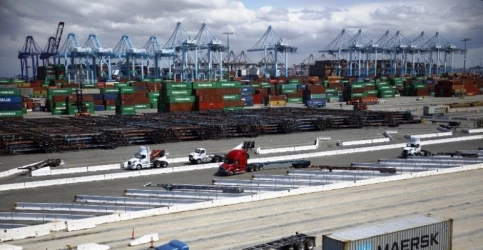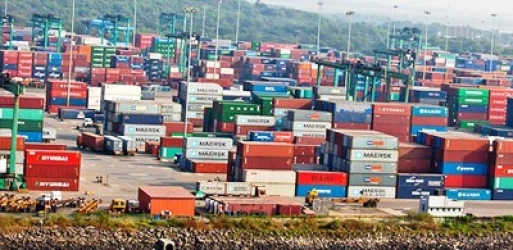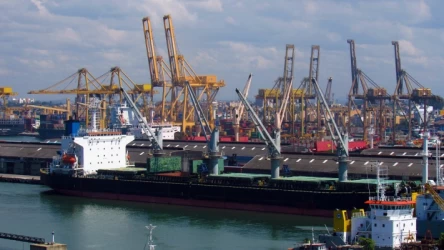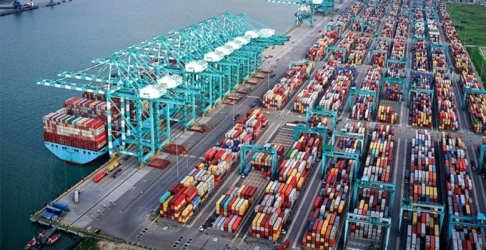Guide to Trade with Portugal, Maritime Shipping
Portugal, a nation with a rich history of exploration and trade, offers numerous opportunities for international businesses looking to expand their market reach. With its strategic location on the Atlantic coast, modern shipping infrastructure, and robust economy, Portugal serves as an ideal hub for maritime shipping and trade. This article provides a detailed guide on how to navigate trade with Portugal and the intricacies of maritime shipping.
1. Overview of the Portuguese Market
a) Economic Landscape
Portugal's economy has experienced significant growth over the past few years, making it an attractive destination for foreign investment. Key sectors include tourism, technology, agriculture, textiles, and renewable energy. The country is known for its high-quality products, particularly in wine, cork, and textiles, which hold substantial export potential.
b) Trade Agreements
As a member of the European Union (EU), Portugal benefits from numerous trade agreements that facilitate trade with other member states and countries around the world. These agreements provide reduced tariffs, streamlined customs processes, and greater market access for businesses looking to import or export goods.
2. Conducting Business in Portugal
a) Market Research
Before entering the Portuguese market, conducting thorough market research is crucial. Understanding local consumer preferences, cultural norms, and market trends will enable businesses to tailor their offerings to meet the demands of Portuguese consumers.
b) Legal Requirements
When trading with Portugal, businesses must comply with local laws and regulations. This includes registering the business with the appropriate authorities, obtaining necessary licenses, and adhering to EU standards for product safety and quality.
c) Establishing Partnerships
Building strong relationships with local distributors, agents, or partners is essential for successful trade in Portugal. Networking within industry associations and attending trade fairs can help businesses establish connections and gain insights into the local market.
3. Maritime Shipping to Portugal
a) Importance of Maritime Shipping
Maritime shipping is a critical component of international trade, providing a cost-effective and efficient means of transporting goods. Portugal's strategic location and well-developed port infrastructure make it a preferred destination for maritime shipments.
b) Major Ports in Portugal
Portugal has several key ports that facilitate international shipping:
- Port of Lisbon: The largest and busiest port in Portugal, handling a wide range of cargo and providing excellent connectivity to global shipping routes.
- Port of Porto: Located in the north, this port specializes in bulk cargo and containers, serving as a vital gateway for trade in northern Portugal.
- Port of Setúbal: Known for its proximity to Lisbon, Setúbal is a key port for both cargo and passenger traffic, making it an important hub for maritime logistics.
c) Types of Maritime Shipping
When shipping goods to Portugal, businesses can choose between different types of shipping services:
- Full Container Load (FCL): Ideal for large shipments that fill an entire container, providing a cost-effective solution for businesses with significant cargo volume.
- Less than Container Load (LCL): Suitable for smaller shipments where goods share container space with other cargo, allowing businesses to reduce shipping costs while still accessing maritime transport.
4. The Shipping Process
a) Preparation for Shipping
To ensure a smooth shipping process, businesses should take the following steps:
- Documentation: Prepare all necessary shipping documents, including the commercial invoice, packing list, bill of lading, and any required certificates (e.g., certificate of origin, phytosanitary certificate).
- Packaging: Properly package goods to prevent damage during transit. Ensure compliance with international shipping standards for labeling and handling.
- Choose a Freight Forwarder: Collaborate with a reliable freight forwarder who can handle logistics, customs clearance, and shipping arrangements.
b) Customs Clearance in Portugal
Upon arrival at a Portuguese port, goods must undergo customs clearance. Key points to consider include:
- Customs Duties and Taxes: Goods imported into Portugal may be subject to customs duties and value-added tax (VAT). It’s essential to calculate these costs in advance to avoid unexpected expenses.
- Required Documentation: Customs authorities will require specific documentation, including the commercial invoice, packing list, and any relevant certificates.
- Inspection Procedures: Some goods may be subject to inspections to ensure compliance with EU regulations, particularly in the case of food, pharmaceuticals, and hazardous materials.
5. Challenges in Trade with Portugal
a) Regulatory Compliance
Businesses must be aware of and comply with both Portuguese and EU regulations regarding product safety, labeling, and environmental standards. Non-compliance can result in fines, delays, or the rejection of goods at customs.
b) Language Barriers
While English is widely spoken in urban areas and among business professionals, language barriers may still exist in certain regions. It is advisable to have documentation translated into Portuguese and to consider hiring local representatives who can facilitate communication.
c) Cultural Differences
Understanding Portuguese business culture is vital for building successful relationships. Key aspects include:
- Personal Connections: Building trust and rapport is essential. Invest time in face-to-face meetings and networking.
- Negotiation Style: Portuguese negotiations may be more formal and relationship-oriented, requiring patience and understanding.
6. Conclusion
Trade with Portugal presents numerous opportunities for businesses looking to expand their operations in Europe and beyond. By understanding the local market, adhering to regulations, and leveraging maritime shipping, companies can effectively navigate the complexities of international trade. With its strategic location, modern port facilities, and robust economy, Portugal remains an attractive destination for global trade ventures.
If you have any specific questions or need further assistance, feel free to ask!











